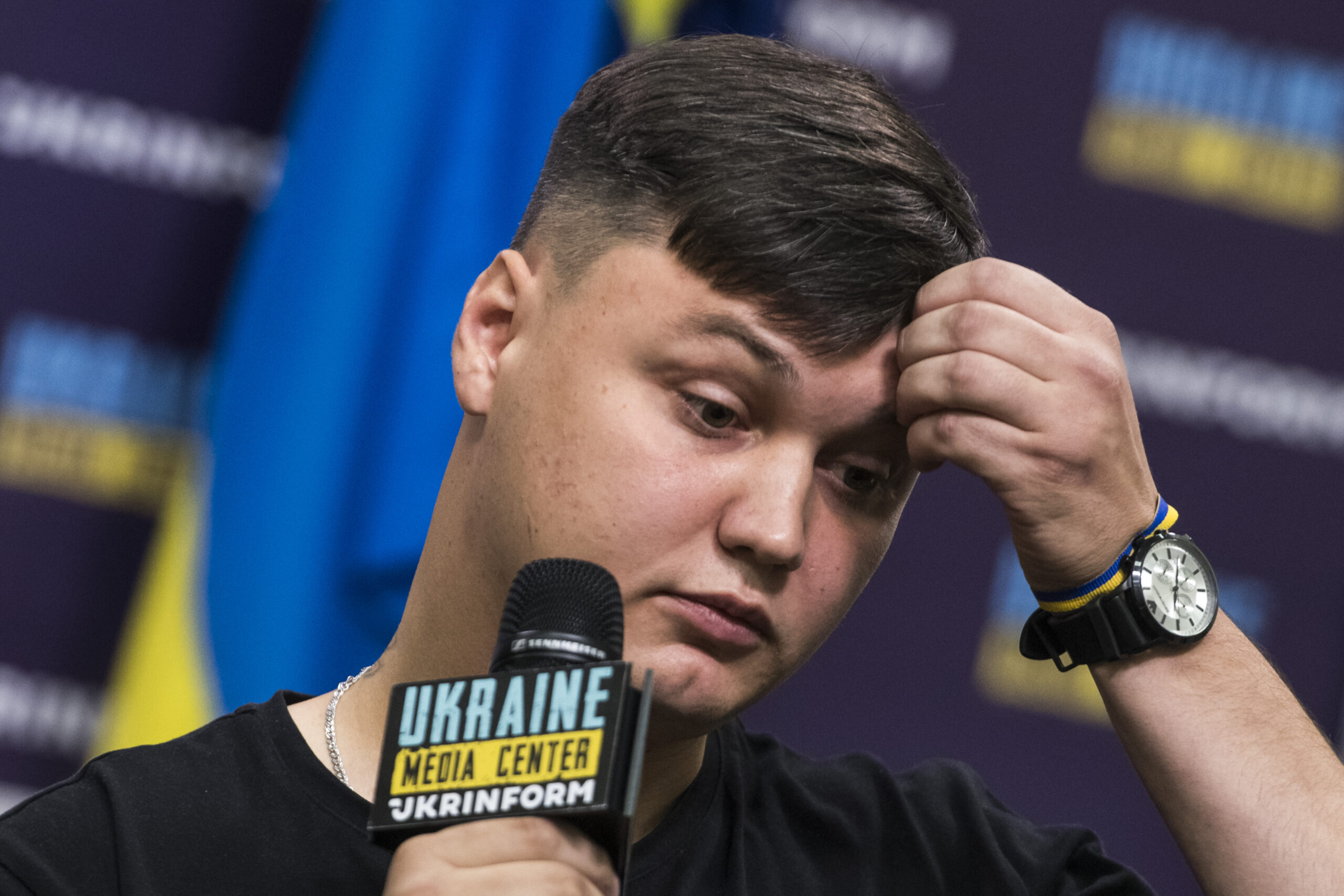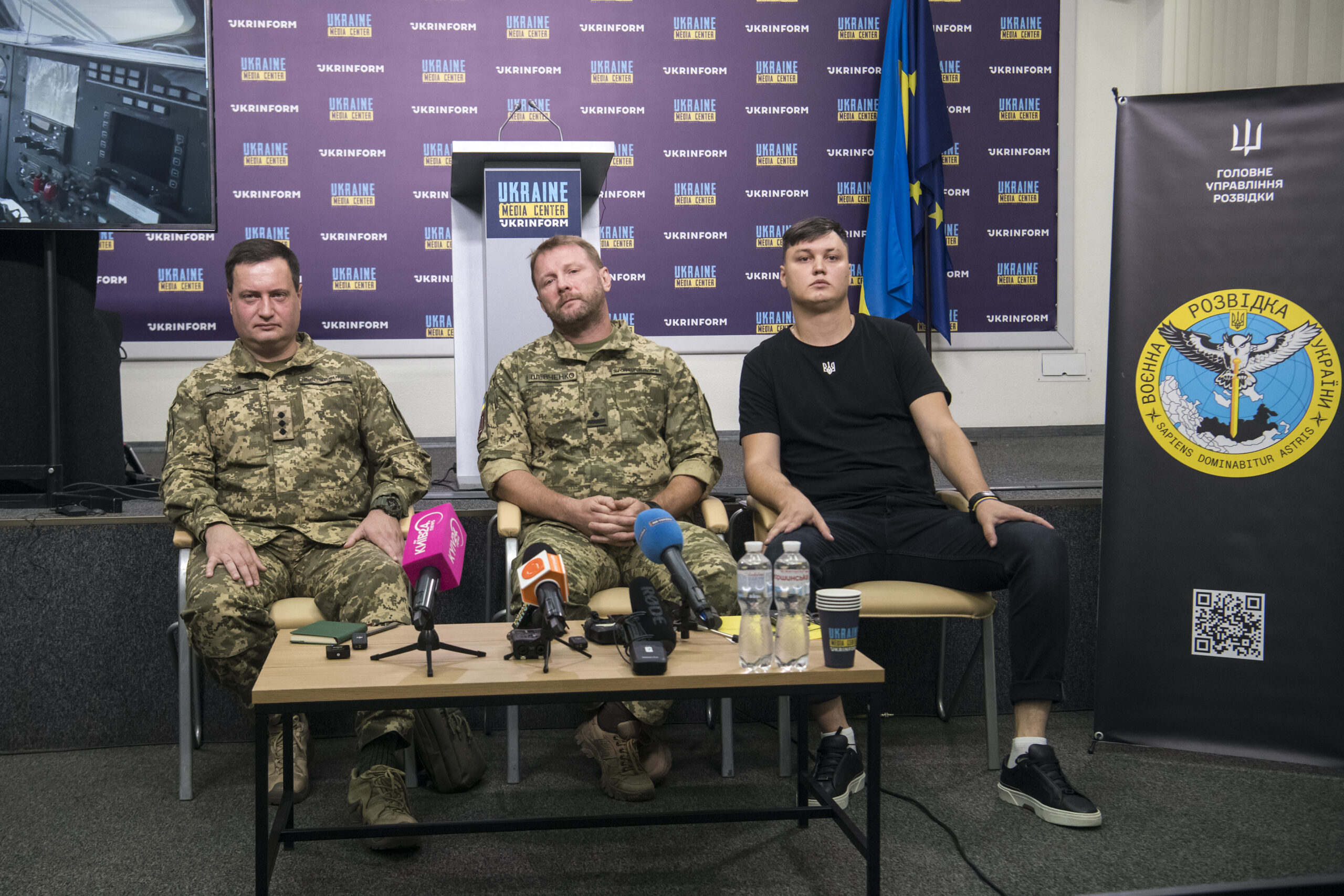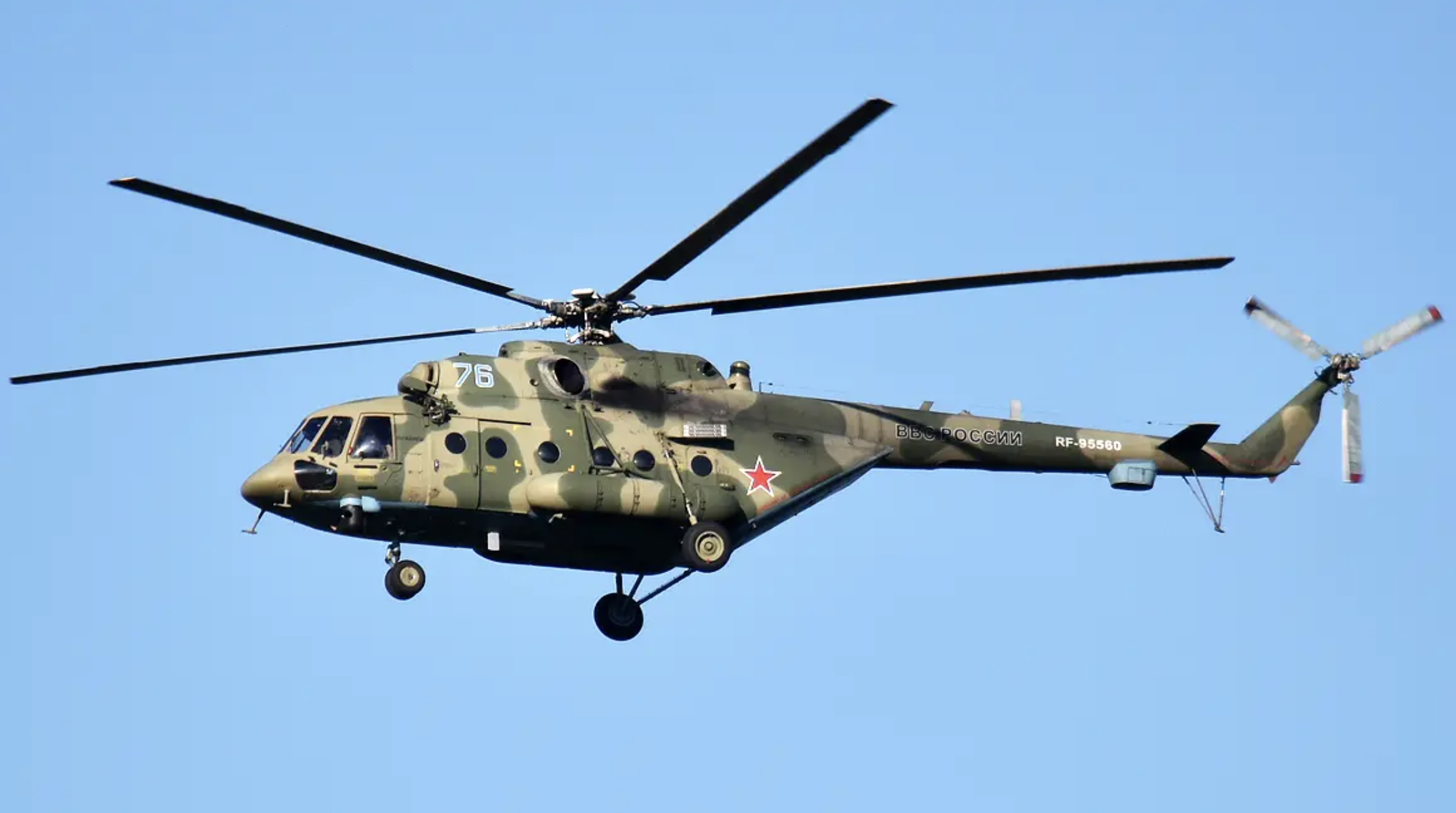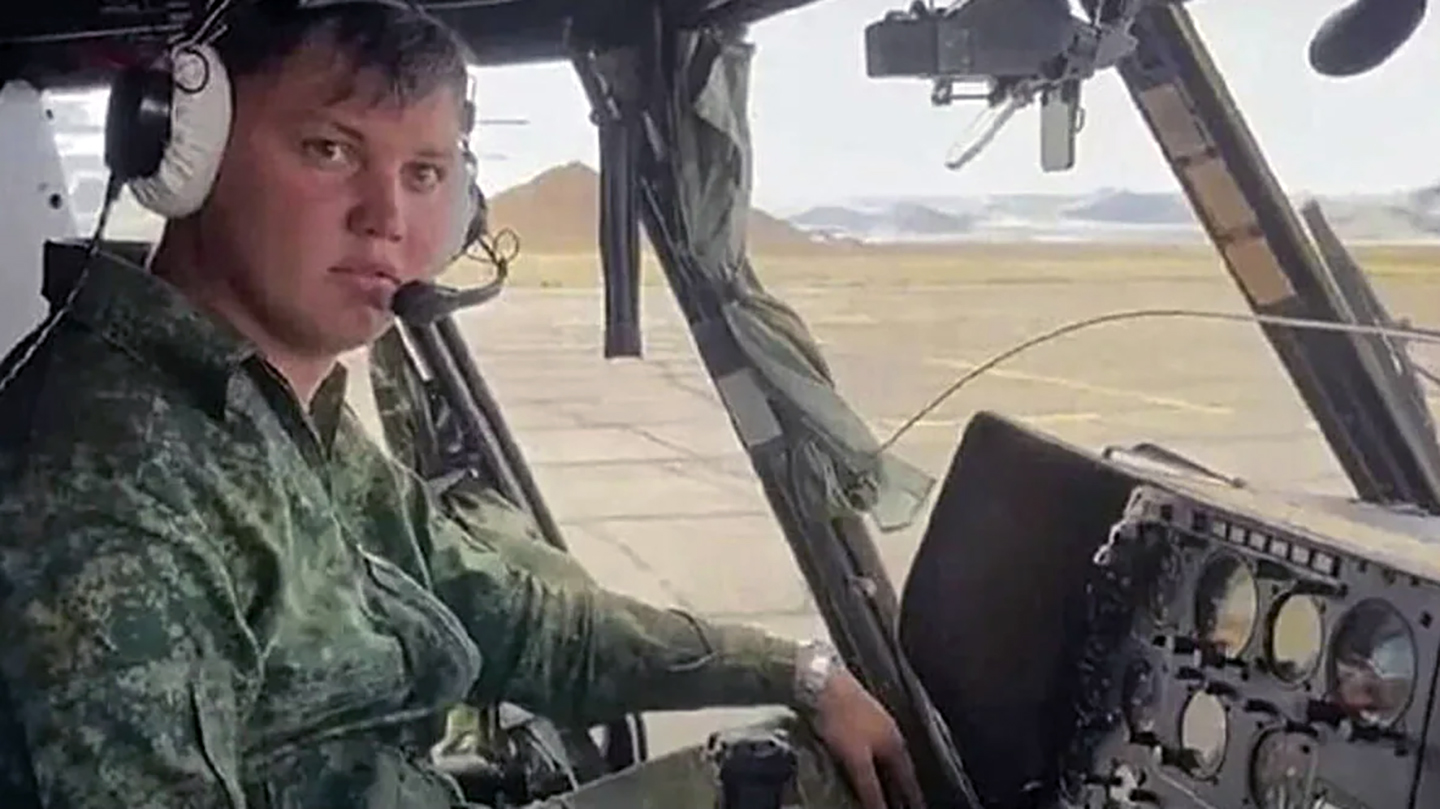Russia’s Foreign Intelligence Service has responded to the violent death of a Russian military helicopter pilot who defected to Ukraine last year. As if they didn’t exist already, suspicions will now fall even heavier upon the Kremlin and its potential role in the demise of Russian Aerospace Forces (VKS) pilot Maxim Kuzminov, who was found dead from gunshot wounds in Spain last week.
“In Russia, it is customary to speak either good of the dead or nothing at all,” said Sergei Naryshkin, the director of Russia’s Foreign Intelligence Service (SVR), when asked about Kuzminov.
“This traitor and criminal became a moral corpse at the very moment when he planned his dirty and terrible crime,” Naryshkin was quoted as saying by Russia’s state-run TASS news agency.
Kuzminov’s body was discovered Tuesday last week, on the car park ramp below an apartment block in Villajoyosa, in the Alicante region on the Spanish Mediterranean coast. Reports claimed he was murdered by unknown gunmen who fired 12 shots.
A burnt-out car was found in the nearby town of El Campello and the Spanish police reportedly initially thought the shooting was gang-related.
It appears that Kuzminov had moved to Alicante, a popular tourist region, after leaving Ukraine. Spain’s state news agency EFE said he had been living there under a different name but still used a Ukrainian passport.
Citing an unnamed source in the Ukrainian Ministry of Defense’s Main Directorate of Intelligence, or GUR, the newspaper Ukrainskaya Pravda reported that Kuzminov’s body was found by his former girlfriend.
“He decided to move to Spain instead of being here [in Ukraine]. From what we know: he invited his ex to his place and was found shot dead,” the same source reportedly said.

Kuzminov’s death was also confirmed by a press spokesperson for the GUR, Andrii Yusov, although he provided no further details.
Spain’s national police have so far not commented on the case.
Among Russian commentators, there are already rumors that Kuzminov might not be dead at all and instead, the incident in Spain is a fabrication by Ukrainian intelligence.
“Don’t get too excited,” Vladimir Rogov, a Russian-installed official in southern Ukraine, wrote on the Telegram messaging app. “They want to create a new biography with a clean slate and a new name for the traitor.”
While there’s no evidence of that, since The War Zone first reported on this story, more details have come to light about how the defection — masterminded by the GUR — took place.
The operation was codenamed Synytsia (after the small passerine bird) and required six months of planning, according to the Ukrainians.
Initially, it seems that Kuzminov contacted the GUR himself, via its Telegram channel.
“I reached out, we created a secret chat and started corresponding,” Kuzminov explained later. “No one imposed their opinion on me in any way, it was my decision. And for the next six months, we were building routes, thinking about how best to do it.”

“I contacted representatives of the Ukrainian intelligence service and explained my situation. I was offered security guarantees, new documents, and remuneration. We discussed the details and started planning my flight,” Kuzminov — 28 at the time of the operation — added.
Ahead of the defection itself, the pilot’s family was extracted from Russia for their own safety.
On August 23 last year, at 4:30 P.M. local time, Kuzminov took off from Kursk airfield in Russia. His Mi-8AMTSh Hip helicopter carried another two crewmembers and was reportedly loaded with parts for Su-27 and Su-30SM fighters. All three crew are said to have been unarmed.

As he got closer to Ukrainian territory, Kuzminov began flying at very low level — around 16-33 feet — and in radio silence. Russian air defenses appear to have been alerted to the incident by this point since they reportedly opened fire on the helicopter as it crossed the border.
“I can’t say for sure who started it, but I assume it was the Russian side. I was shot in the leg with small arms. I then flew about 20 kilometers [12 miles] away and landed at the designated location [in the Kharkiv region],” Kuzminov said.
In a subsequent press conference in Kyiv, Kuzminov claimed that he’d tried to persuade the other two crew that they would be well treated by the Ukrainians. “But they got afraid, began behaving aggressively, and eventually rushed out of the helicopter,” he said. Both the other crew members were killed.
Speaking about the incident Maj. Gen. Kyrylo Budanov, chief of the GUR, explained:
“When they realized where they had landed, they tried to run away. Unfortunately, they were destroyed; we would have liked to [take them] alive, but we have what we have.”
Last September, at the time of the press conference, there were suggestions that Kuzminov might be considering joining the Ukrainian Army Aviation, which also flies Hip series helicopters. Reportedly, he received the equivalent of $500,000 from the Ukrainian authorities by way of reward. For whatever reason, however, Kuzminov decided against joining the Ukrainian side and instead seems to have relocated to Spain.
Once in Spain, it seems that Kuzminov might have left himself more exposed to an assassination attempt.
According to Ukrainskaya Pravda, Russia had “repeatedly threatened to kill Kuzminov.”
In our previous report about the incident, we also noted that “Kuzminov will likely be living the rest of his life looking over his shoulder,” a prophesy that turned out to be all too literal.
While we may well never know for certain whether his murder was orchestrated by the Kremlin, it would not be the first killing to be blamed on Putin’s security services. Most recently, Yulia Navalnaya, the wife of Russian opposition leader Alexei Navalny accused Moscow of murdering her husband, in an Arctic prison camp.
Another prominent Russian dissident, Alexander Litvinenko, was poisoned by the Federal Security Service (FSB) in 2006. In 2018, agents from the same organization allegedly tried to kill Russian double agent Sergei Skripal, albeit unsuccessfully. In 2021, a German judge blamed Russia for the murder of Zelimkhan Khangoshvili, an ethnic Chechen of Georgian citizenship who commanded a militia in the Chechen war in the 2000s.
While Kuzminov’s story ended bloodily, the operation remains a significant coup for Ukraine — and, very likely, a considerable intelligence windfall. It would not be surprising if it has provided impetus for other such audacious missions, too.
Contact the author: thomas@thewarzone.com
